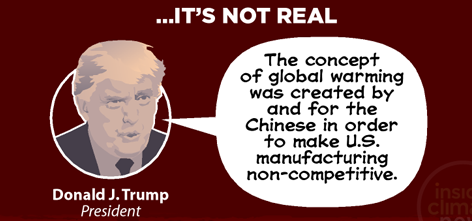Germany’s Climate Election–The United States Is Unique In Climate Denial

After 16 years under the leadership of Angela Merkel, Germany votes for a new chancellor at the end of September. The post-Covid economic recovery and immigration are all on the ballot. But there’s no mistaking this election as a climate vote.
Case in point is the dramatic rise of the Green Party, up from 8% in the polls three years ago, to contend for the chancellorship under the leadership of 40-year-old, London School of Economics-trained Annalena Baerbock. The Greens have been in government before, but never standing the chancellor. For climate watchers, such a win would send significant signals well beyond German borders.
With climate ranking unusually high among domestic political considerations, I asked German energy economist Claudia Kemfert for help making sense of it all. To Kemfert, Germany’s climate approach is largely a question of speed toward decarbonization and the finer details of who pays for what, rather than the U.S.-style debate on whether climate change is real. Merkel’s successor at the helm of the conservatives, Armin Laschet, “will continue the energy transition,” Kemfert said. It would not be as ambitious as under a Green chancellor, but Germany’s parliamentary system forces a coalition government, making it all but certain that post-election climate policies would be a mix of party positions.
The United States is unique in the world for the power wielded by climate deniers; it’s the only place on Earth where such a position is taken seriously by a significant percentage of the electorate.
So how is this possible? It’s a combination of factors:
• Big Oil has focused its propaganda campaigns on the U.S., as many of the world’s largest petroleum concerns are based here.
• Freedom of speech as guaranteed by our First Amendment enables the aggressive contagion of disinformation.
• Anti-intellectualism is a core ingredient in American culture. As author Isaac Asmimov put it, “There is a cult of ignorance in the United States, and there has always been. The strain of anti-intellectualism has been a constant thread winding its way through our political and cultural life, nurtured by the false notion that democracy means that ‘my ignorance is just as good as your knowledge.”
Of course, all this has been exacerbated over the past few years. Before 2016, it was inconceivable that the United States would elect a president who speaks at a fourth-grade level, asserts that the pandemic and climate change are Democrat hoaxes, and claims that some neo-Nazis are “good people.”
Given all this, and the fact that our educational system continues to deteriorate, there seems to be no limit to which the American intellectual culture can sink.
